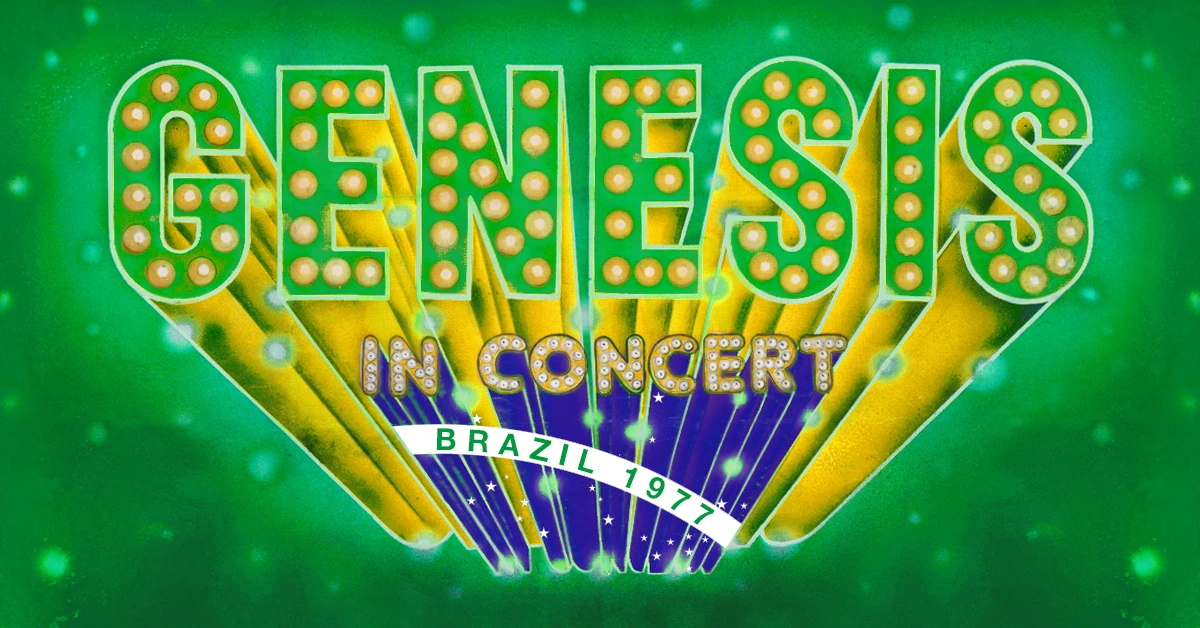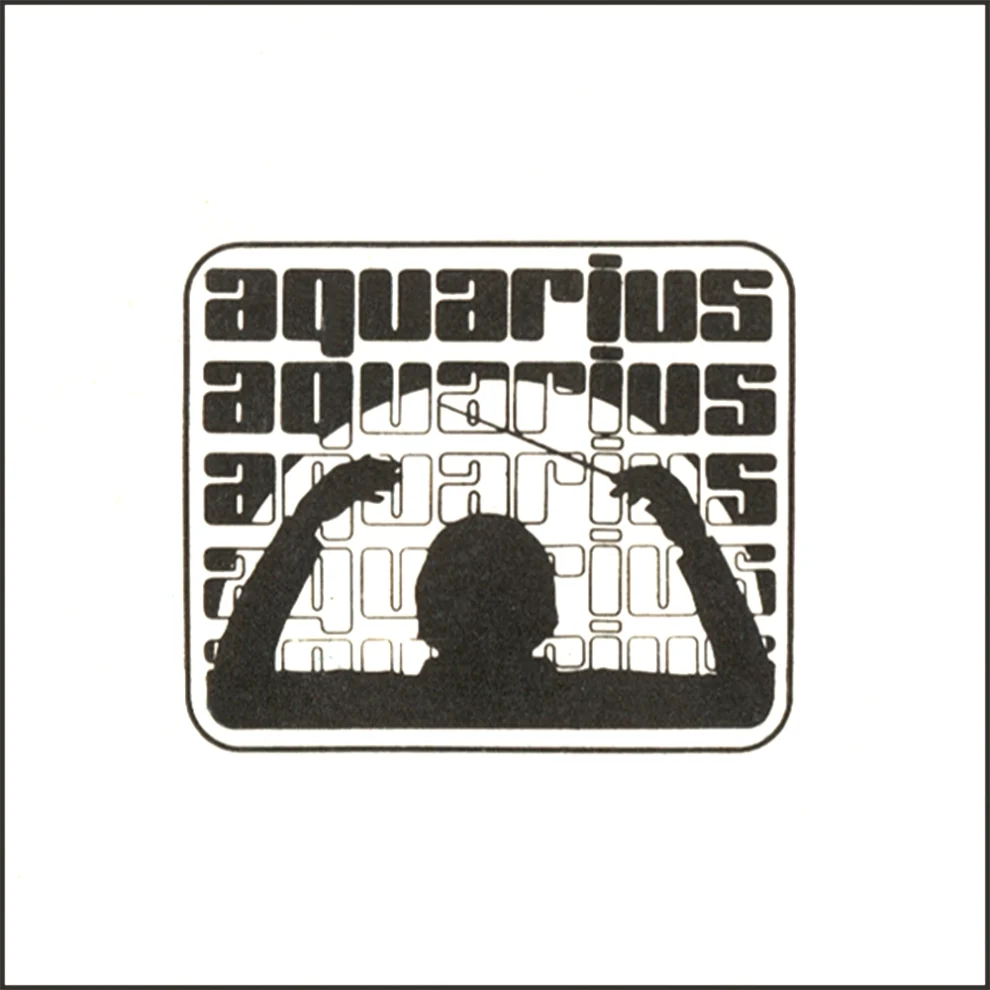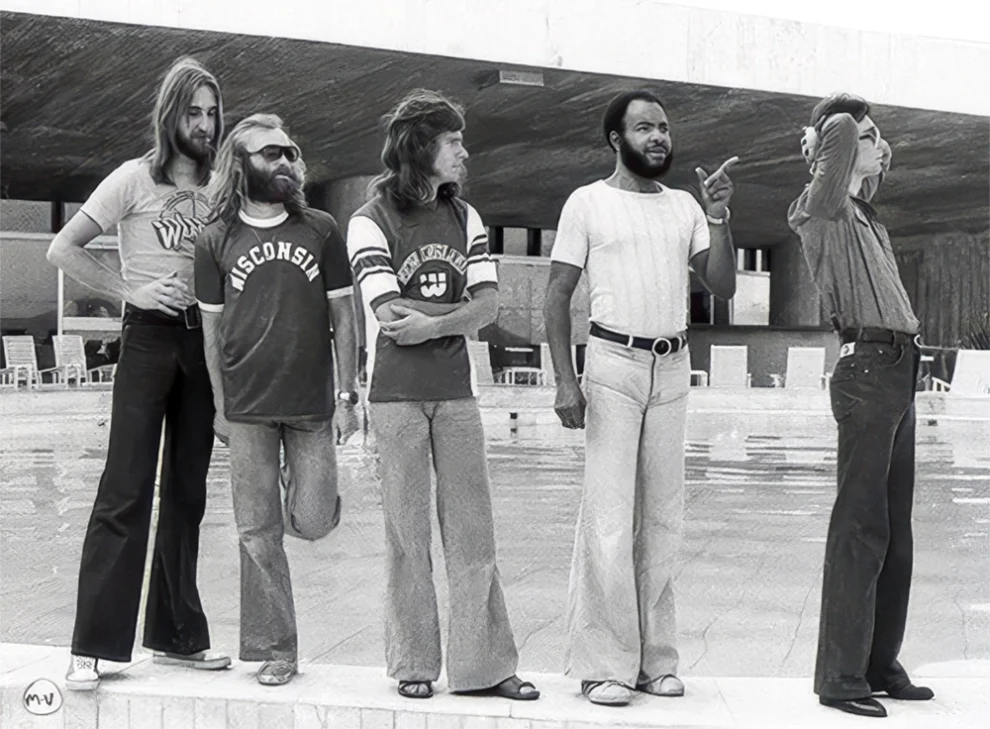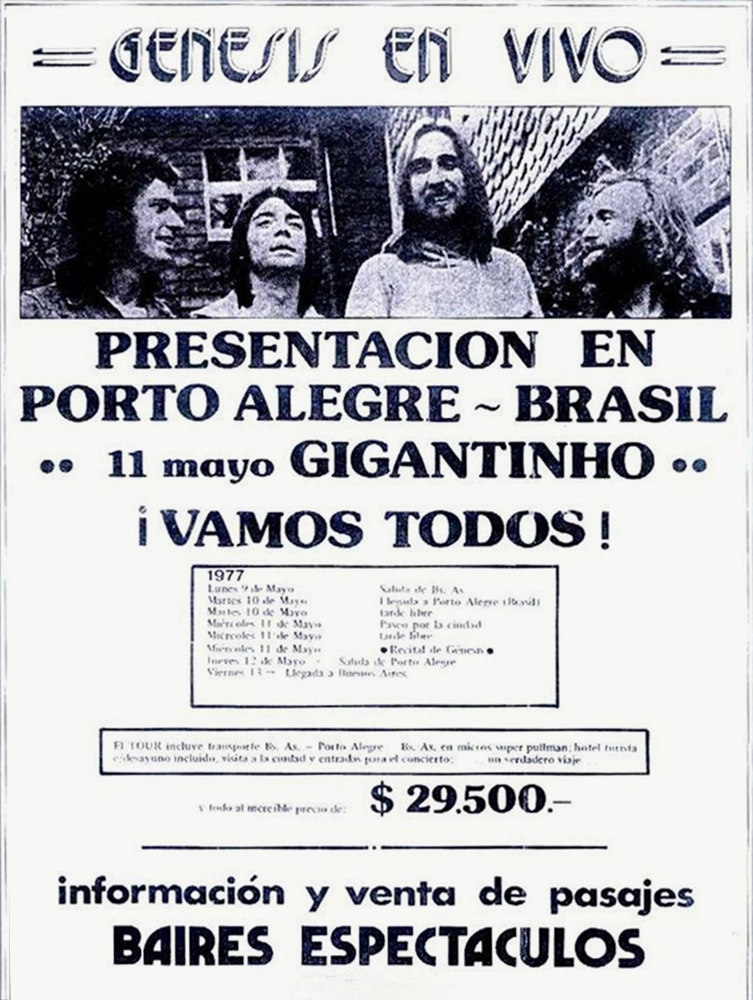- Article
- Read in 35 minutes
Genesis in Brazil 1977
In 1977, Genesis toured South America for the first time and the only time in their career. Our research team has translated over 100 newspaper articles from Portuguese and evaluated other sources to tell the story of this part of the Wind And Wuthering tour.
A new year, a new album, a new tour. 1977. Wind & Wuthering. GENESIS.
On the first day of the new year 1977, Wind & Wuthering was officially released. The album had already been available in stores for the Christmas season of 1976, nevertheless. At the same time, the accompanying tour began on January 1st at the Rainbow Theatre in London.
The tour took Genesis through England and Scotland, the USA, and Canada, as well as Mainland Europe. However, this time the band visited South America for the first and only time in their career. Their journey would take them to Brazil, where they would perform 12 unforgettable concerts. Until now, the story of these concerts in Brazil, especially the dates in São Paulo, has not been extensively covered. This is what we want to rectify here. We mainly used Brazilian newspapers from 1977 as our best sources for these events.
1977
The world was different. Jimmy Carter became the 39th President of the United States. The Deutsche Bundesbahn used steam locomotives for the last time on a regular basis. In American, the space probe Voyager 2 was launched. The Sex Pistols shocked the public with their punk song God Save The Queen during the British Queen’s jubilee. Elvis Presley died at the age of just 42, and George Lucas’s Star Wars series came to cinemas. The South African civil rights activist Steve Biko died after being tortured by the police. Apartheid still ruled in South Africa. However, in Spain, free elections were held for the first time in 41 years. In Brazil, this was not the case, as a military dictatorship had been in place since 1964.
Music and hope for better times were then the motto under which Péricles de Barros, the then promotion manager of Globo, suggested the name for the new initiative of the newspaper: the Aquarius Project. The project was created in 1972 in the editorial office of the newspaper and aimed to offer the public free music and dance performances that had previously been reserved for the demanding theaters and concert halls, which were often inaccessible to the majority of the population of Rio de Janeiro.
The newspaper O Globo was part of the Globo organisation. In addition to the newspaper, this organisation included a whole range of other companies, e.g. several radio and television stations (Rede Globo de Televisão), a record label (Som Livre) and a show promotion company (Vasglo).
As early as 1975, Rick Wakeman (Yes) had performed five concerts in São Paulo, Porto Alegre, and Rio as part of the Aquarius Project. Now, Genesis was to be brought to Brazil. And so, starting from March 15, 1977, various newspapers announced that the band would come to Brazil in May during their Wind & Wuthering tour for 13 concerts. [1,2,3]
Before the tour could begin, Allen Branten, front-of-house technician and Allan Caine, both presumably Showco employees, visited the venues to inspect them. They were accompanied by the general producer of Aquarius and a representative from Vasglo. Based on their observations, they compiled a list of technical measures that still needed to be implemented.
According to Allen Branten, the sound and lighting equipment of the band weighed 25 tons. The sound system could provide up to 40,000 watts RMS (Root Mean Square). It could have delivered up to 60 or 80 thousand watts RMS, but in the three Brazilian venues, the 40,000 watts were more than sufficient due to the size and acoustic conditions.
The most exciting aspect, however, was the laser cannons. Alone, these consumed 200 kVA, and Allan Caine was constantly concerned that there would not be enough water on stage to cool the equipment [4].
On April 6, Tony Smith sent a telex to the leadership of the Aquarius Project in Rio:
“I am pleased to confirm that Genesis will arrive in Rio de Janeiro on May 8 for the concert series of the Aquarius Project. It will be an honour for our group to perform in Brazil and within a culturally significant movement like the Aquarius Project. We are very much looking forward to this visit to Brazil.” [5]
During a meeting at GLOBO on April 6, the schedule for Genesis in Brazil was set as follows.
10 & 11 May 10 – Porto Alegre – Premiere at Gigantinho.
14 & 15 May 14 – Rio de Janeiro – Maracanãzinho.
18 & 19 May 18 – São Paulo (no venue yet). [5,6]
A week later, the planned arrival of the band in Rio was moved forward to May 6. Genesis was to land at the new Galeão airport on the Concorde at 3 PM.
And on April 15, the concerts were announced as follows.
10 & 11 May – Porto Alegre – two concerts at Gigantinho.
14 & 15 May – Rio de Janeiro – Maracanãzinho (two concerts per day).
18 & 19 May – São Paulo – two concerts at Anhembi (still without a venue).
21 & 22 May – São Paulo – Sports Hall Ibirapuera (two concerts per day). [7]
This changed again, and the headline on April 28 read: Genesis will arrive in Rio on May 4.
At the same time, the dates for São Paulo were changed again. They now read:
20 & 21 May 20 – São Paulo – Sports Hall Ibirapuera (two concerts per day).
22 May – São Paulo – in Anhembi (two concerts) [8,9].
Rio de Janeiro
Genesis landed in Rio de Janeiro on May 4, as planned, at 3 PM. From 2 PM onwards, many fans were waiting in the lobby of the international airport. An hour later, they greeted Genesis with shouts like “that’s him” or “look at Tony.”
Tony Banks wore blue jeans and a gray shirt, while Mike Rutherford wore an elegant navy blue velvet suit. Security personnel and reception staff split the musicians between four limousines waiting a few meters from the customs exit. Despite this, the band did not miss the opportunity to sign autographs. Less than an hour after the plane landed, Genesis and their entourage headed to the Hotel Nacional, where they stayed when they were in Rio. [10]
The day after their arrival, all four band members and Chester Thompson gave individual interviews to the press in the spacious hotel hall.
Tony Banks, for example, responded to the question of why they would not play Ripples and A Trick Of The Tail: “We have prepared and rehearsed a show that can do without these two pieces. All our songs are equally well-known to the audience.” Tony was also asked if he knew that 20,000 people would be at the Maracanãzinho to see him play. This seemed not to bother him, as he casually replied, “I’m used to playing in front of a large audience.” Later, he revised his statement and admitted that he preferred a small audience: “A small audience always consists of interested people, which is rarely the case with a large audience.” And he added, “With a large audience, I feel a bit uncomfortable.”
Chester Thompson told the journalists, when asked about his status as a live drummer, that it was important for him to play constantly because it gives him great joy: “I play any kind of music as long as it’s good,” he said, to which Phil Collins added with a wink, “Mostly foxtrots and waltzes”. [11]
On the same day, Tony Smith also met with the general director of the Aquarius Project and the producer of O Globo. There, they agreed on the most important details that were the same for all performances in Brazil. The shows were to begin with the Aquarius Project theme, an excerpt from Stravinsky’s Firebird, followed by a five-minute tape of the group’s music. This opening was planned as a kind of audio-visual show, accompanied by a series of lighting effects [11].
Additionally, the dates for São Paulo were changed again at the request of the band. Since the band wanted a free day in São Paulo, which was not possible, it was agreed that instead of six shows over three days, there would be six shows over four days.
The dates now read:
19 May – São Paulo – Sports Hall Ibirapuera (9 PM)
20 May – São Paulo – Sports Hall Ibirapuera (6 PM and 9 PM)
21 May – São Paulo – Sports Hall Ibirapuera (6 PM)
22 May – São Paulo – in Anhembi (6 PM and 9 PM) (still without a venue) [11,12,13].
Tickets for São Paulo were not yet on sale. In Rio, ticket sales began on May 6 [11].
O Globo reported the next day about the start of ticket sales on Friday and mentioned for the first time the exhibition hall in Anhembi as the venue for May 22.
They also reported on the band’s leisure activities:
“Ticket sales in Rio began very hectically. In the long queues, there were occasional disturbances. The worst was at Mercadinho Azul, where the head of the SUDERJ office (the state sports supervision agency of Rio de Janeiro) felt forced to suspend sales, which were later resumed. On Saturday, tickets were sold only at the Maracanãzinho box office, just like on Sunday“. [14].
On Friday, the band had dinner at Mário’s and then went to the famous nightclub 706. The samba played by Eduardo’s ensemble there delighted Phil Collins and Chester Thompson in particular. And so, the two joined the ensemble and played with them for over an hour [14].
Afterwards, Phil and Chester wanted to buy their own Brazilian percussion instruments, but not industrially made ones, rather handmade. Phil Collins writes about this in his book Not Dead Yet: “I bought traditional Brazilian percussion instruments (including a surdo, a large drum held in the hand, which I played on Peter’s Biko one day)” [15].
Over the weekend, most of them participated in other leisure activities. On Saturday, they bought jewelry at Roditi in the Copacabana Palace. The next day, on Sunday, Globo invited them on a boat trip around Guanabara Bay (a 380 km² marine bay located on the western side of Rio de Janeiro). Afterward, they bought leather goods at the Hippie Market at Praça General Osório. Following the Hippie Market, the band participated in a tasting of Brazilian juices at their request. The pineapple juice tasted the best to them [16].
Just before Genesis flew to Porto Alegre for the first concerts, Ivan Lopes de Almeida from Globo provided information about the infrastructure of suitable venues in Brazil and their technical deficiencies. At that time, the biggest problem for hosting shows of this magnitude in Brazil was the almost complete lack of infrastructure in Brazilian sports halls. They were built only for sports activities, not for large shows. For example, the ceilings were not strong enough to support the weight and type of modern lighting. He cited the Gigantinho as an example: “The power in the sports hall was 150 kVA with 900 amps. Genesis needed 450 kVA. This forced us to implement emergency measures at the Gigantinho. Of the venues where Genesis was to perform, the Maracanãzinho offered the best infrastructural conditions. However, we had to install special power generators in all sports halls to meet Genesis’s energy needs” [17].
[*] Editor’s note: This information was taken unchanged from O Globo. However, it has been brought to our attention by various parties that the unit ‘kWA’ does not exist. The correct unit should be ‘kW’, as the amperage ‘Ampere’ is already included in ‘Watt’. The specification 150 kW with 900 amperes is obviously also incorrect. Rather, it should read 115 kW with 900 amperes. This can be calculated from the grid standard of 127 volts in Porto Alegre (127 V x 900 A = 114.3 kW, i.e. 115 kW). This appears to be an acoustic confusion between 150 and 115.
Porto Alegre
On May 9, the band arrived in Porto Alegre with a slight delay. There, they gave another interview to the press in their hotel, the Plaza São Rafael, followed by an autograph session for the numerous fans. Later, they went to the sports hall of Internacional (Gigantinho), where they appraised themselves about the venue. Groups of young people were already gathering around the sports hall [18].
The excitement about the upcoming Genesis concerts is illustrated by the following incident: Near the sports hall was a preparatory course for the university, and the arrival of the band led to a disruption of classes, as most students wanted autographs.
However, the great enthusiasm also had negative consequences. As mentioned earlier, ticket sales in Rio had to be suspended due to turmoil. But counterfeit tickets also caused problems. Therefore, organizers advised against buying tickets from black market sellers, as this risked not being allowed into the hall [18].
How right they were is shown by a report that appeared in Globo after the end of the tour in Brazil on May 23:
“The leader of a counterfeiting gang that had been forging entrance tickets for Morumbi, Pacaembu, Anhembi, and Ibirapuera for some time was arrested on Saturday at 4 PM. He is in custody of the federal police.
It was only the fact that they had forged tickets for the Genesis shows that allowed the gang to be dismantled. It was then possible to locate the printing press where tickets for the Saturday and Sunday performances in São Paulo worth more than 800,000 cruzeiros were found.
Many people came to Ibirapuera on Saturday (May 21; ed.) with counterfeit tickets and were not admitted“. [35].
On May 10, a special edition of the magazine Rock Espetacular was released, dedicated to Genesis and containing a large color poster of the band. The magazine featured a series of photos of the group, with texts by Ana Maria Bahiana, who specializes in pop music.
The dates mentioned in the magazine for São Paulo were no longer correct at that time [18].
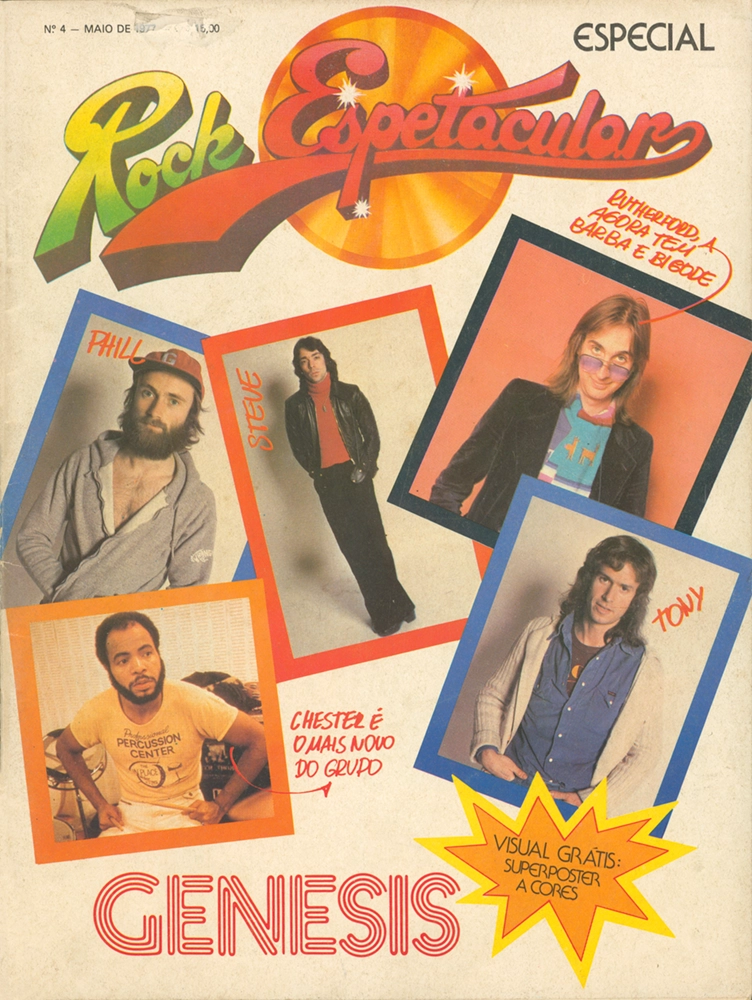
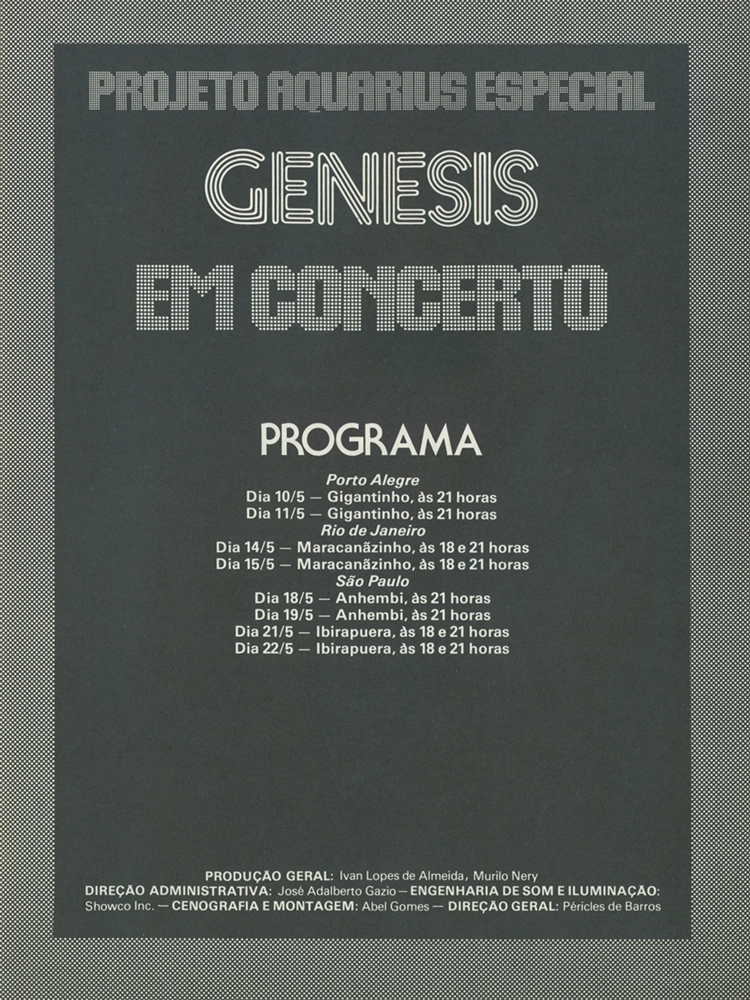
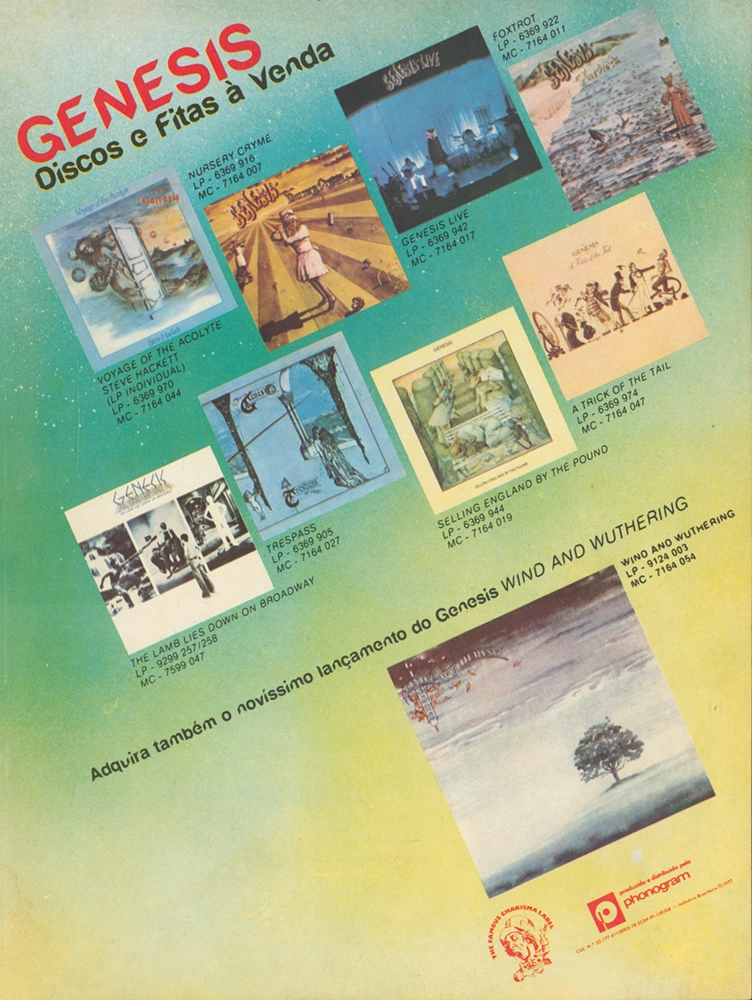
On Tuesday, May 10, the first concert in Porto Alegre took place at 9 PM at the Ginásio Gigantinho.
Globo reported extensively about it the next day:
“Genesis’s debut in Porto Alegre was a revelation for the 15,000 spectators at the Gigantinho. Live, the English band confirmed the impression gained from listening to the ten Genesis albums released in Brazil. The show began punctually at 9 PM with an excerpt from Stravinsky’s Firebird, followed by the activation of multicolored lights and the illumination from laser cannons. For five minutes, the lights accompanied a specially recorded video that serves as a new presentation of the group’s concerts.
From the moment the lights of Genesis’s massive equipment lit up, the crowd, mostly consisting of young people between 15 and 25 years old, was in turmoil. Lead singer Phil Collins greeted the audience in somewhat inaccurate but perfectly understandable Portuguese: “oi gaúchos, it’s great to be here”. [19].
You might stumble over the number of ten albums mentioned above and count them. However, from From Genesis To Revelation to Wind And Wuthering, we only come across nine releases up to May 1977. The explanation for this can be found in the Journal do Brasil newspaper of 5 May:
“This is no less than the group’s tenth LP released in the country, including Hackett’s powerful single album (Voyage Of The Acolyte). This means that Genesis have released all their records in Brazil …” [19a].
Maria Wagner, a columnist from Porto Alegre, experienced the first Genesis performance in Brazil as follows:
“What struck most about this performance by the group was the unity displayed by the five musicians. A harmony that, when transferred to the audience, draws them more and more into their spell. The show is completely audio-visual, yet very balanced.
As with any good show, there were moments of explosion, almost of ecstasy. One of them was Phil Collins’s performance of I Know What I Like, probably the most well-known song by Genesis in Brazil.
It is expected that today’s show will be even more popular than yesterday’s, as several buses from Argentina are coming to Porto Alegre, bringing young people who want to see Genesis up close“. [19].
Regarding the setlist played, Globo wrote on May 12:
“The group made some changes to the originally announced program. Here is what they played in Porto Alegre: Squonk, One For The Vine, Robbery, Assault & Battery, Inside And Out, Firth Of Fifth, Carpet Crawlers, In That Quiet Earth, I Know What I Like, Eleventh Earl Of Mar, Supper’s Ready, Dance On A Volcano, Los Endos, The Lamb Lies Down On Broadway, and The Musical Box“.[20].
The anticipation for the Genesis tour and the first concert led to a significant increase in interest in the band’s records. Especially Wind & Wuthering attracted a lot of attention among young people. As a result, there were few copies left to buy in the record stores of Porto Alegre [19].
Drama in Porto Alegre
The concert on the following day at the Gigantinho was unfortunately complicated. For the second time, 15,000 people attended the show in the sports hall of Esporte Clube Internacional. Every time the three laser beams were used, the audience went wild. And, as on the previous day, I Know What I Like was the most applauded number. Unfortunately, the show had to be ended early because Mike Rutherford became ill during the concert. He had not been feeling well throughout the day and had even visited a doctor. A moderator explained to the audience what had happened, and they left the gymnasium quietly.
After the abrupt end of the show, thousands of young people remained in front of the sports hall gates, hoping to see the five members of the group again. During the three days Genesis spent in Porto Alegre, fans did not leave them alone for a moment. Wherever they went, they were immediately recognized and surrounded. On May 12, the band returned to Rio. [20].
Interestingly, Ricardo Labre, the technical director of SUDERJ, who traveled to Porto Alegre to see the show, concluded that the arrangement of Genesis’s equipment – both sound and lighting – allowed for more space for the audience. For this reason, ticket sales offices in Rio reopened on May 13 to sell additional tickets for seats and stands. [20].
Grêmio! or the Jersey of the Brazilian National Team
When Genesis arrived in Brazil, Tony Smith expressed the wish that the band should wear the jersey of the most popular football team of each city at the end of each show. The production team of the Aquarius Project provided them with the jersey of Sport Club Internacional for Porto Alegre. When the group returned to the stage in their Internacional jerseys at the end of the program (with the exception of Steve Hackett, who refused to wear the jersey), half of the audience protested. A loud chant echoed: “Grêmio! Grêmio! Grêmio!” (the other famous football team from Porto Alegre). However, the audience then applauded the band again, as they were trying to identify with the audience by wearing the Internacional jersey.
To solve the “jersey problem,” the production team of the band and the Aquarius Project team met at the hotel. They discussed whether to switch to the Grêmio jersey. Tony Smith and the band, however, did not intend to “back down.” So, they wanted to perform again in Internacional jerseys at the second show in Porto Alegre and wear the Corinthians jersey for the performances in São Paulo and the Flamengo jersey in Rio. Due to their experience on the first day in Porto Alegre, they changed their minds again. From then on, they would wear the jersey of the Brazilian national team during the encores. [20].
Genesis return to Rio with sick Mike Rutherford
At this point, we want to elaborate on the story of Mike Rutherford’s illness during the second concert in Porto Alegre. On the afternoon before the second concert, Mike Rutherford suffered severe cramps accompanied by diarrhea. After receiving medication, he slowly began to feel better, but he was very weak.
During the concert, Phil Collins announced Supper’s Ready with the story of Romeo and Juliet. Mike could no longer hold on. New cramps and a beginning faintness set in, and he finally left the stage. On the audience recording from May 11, Phil is clearly heard saying, “Um momento!“. Then, a speaker’s voice says, “We ask you to be patient… Mr. Michael Rutherford is suffering from sudden discomfort. A doctor is examining him, and he will be back soon.“
After treatment by the medical team at Gigantinho, he recovered a bit and returned to the stage. However, he only managed to hold on for a short time. The set had to be shortened. They omitted the tracks Supper’s Ready, Eleventh Earl Of Mar, Dance On A Volcano, The Lamb Lies Down On Broadway, and The Musical Box. But it was all in vain, and the concert was ultimately ended prematurely after Los Endos.[21,22].
According to Dr. Miguel Coelho, it was a severe gastrointestinal infection. Possibly, it was caused by contaminated water. Mike Rutherford writes in his book The Living Years that it was food poisoning. After treatment, the Genesis bassist stayed in the hotel and recovered until it was time to return to Rio de Janeiro [21,23].
A Quiet Day in Rio
After the band returned to Rio, they spent a quiet day at the Hotel Nacional on May 13. Phil Collins was the first to rise in the morning. He announced that he would go for a run on the beach after breakfast to prepare for the football match in the evening. He wanted to bet with everyone that his team would win with at least a two-goal lead. The team, composed of Genesis and Showco members, was to play against a team of Aquarius Project employees. [24].
The members of Showco, the company from Dallas responsible for sound and lighting, also took the day off to explore the city. They had enough time, as the equipment, which had been dismantled in Porto Alegre immediately after the concert on Wednesday, did not arrive back in Rio until dawn on May 14. Throughout the day, they were seen repeatedly on the beach in front of the Hotel Nacional. However, they avoided the cold water. [21,24].
On that Friday, there was also talk about Genesis possibly performing a concert in Brasília. There were some requests from the capital to have the band perform there as well. However, the lack of dates made it impossible to organize at least one performance in Brasília. [24].
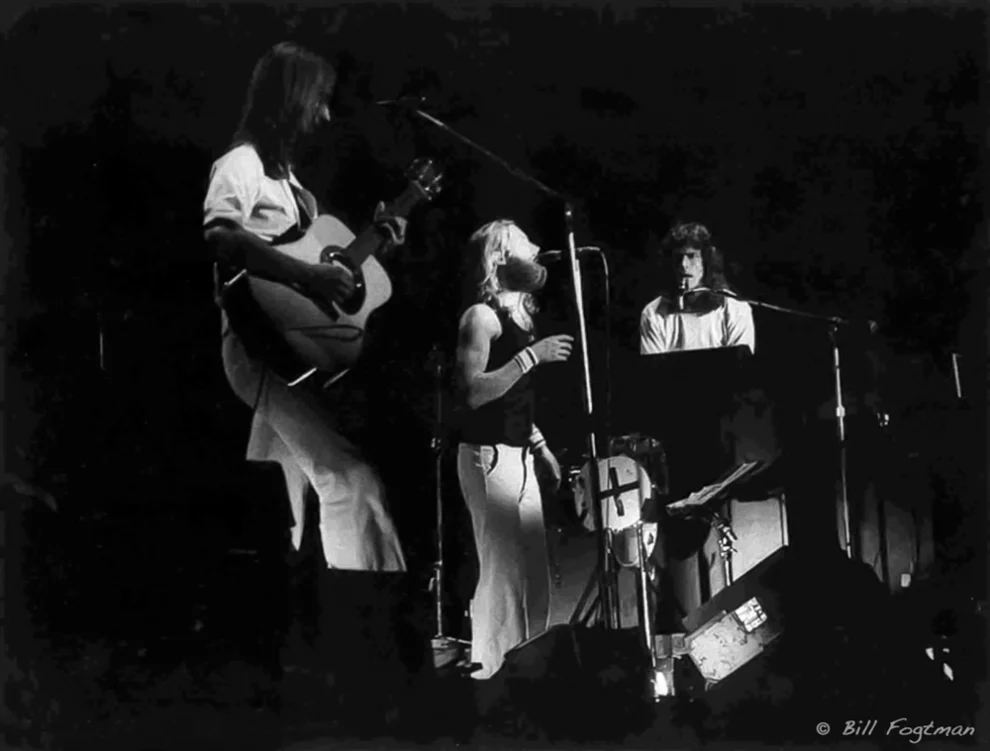
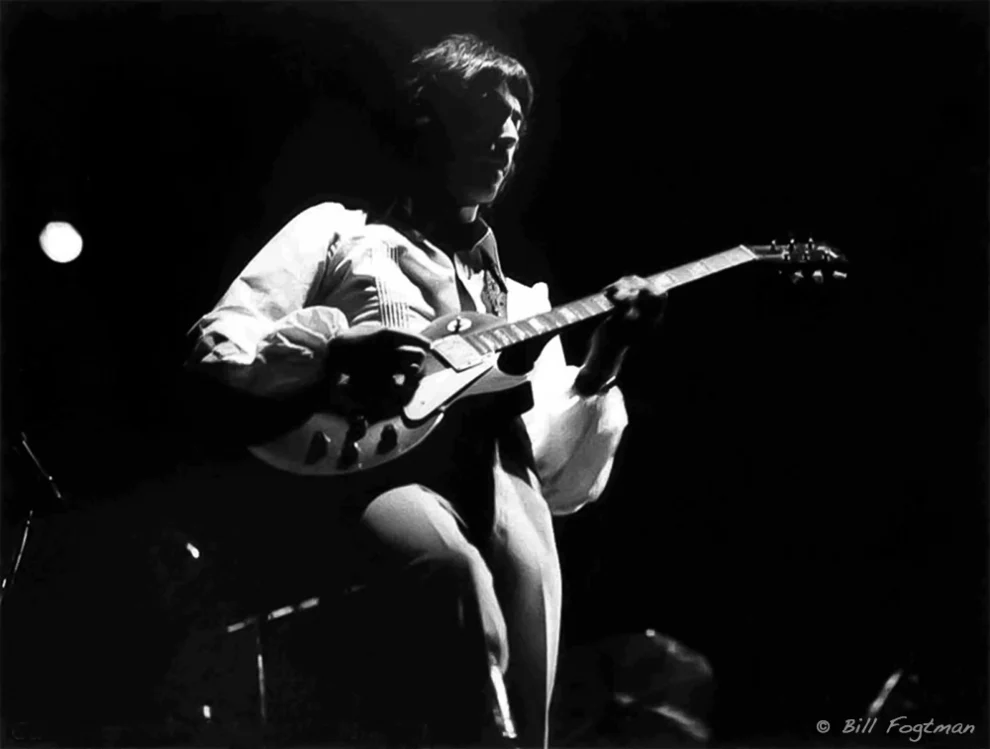
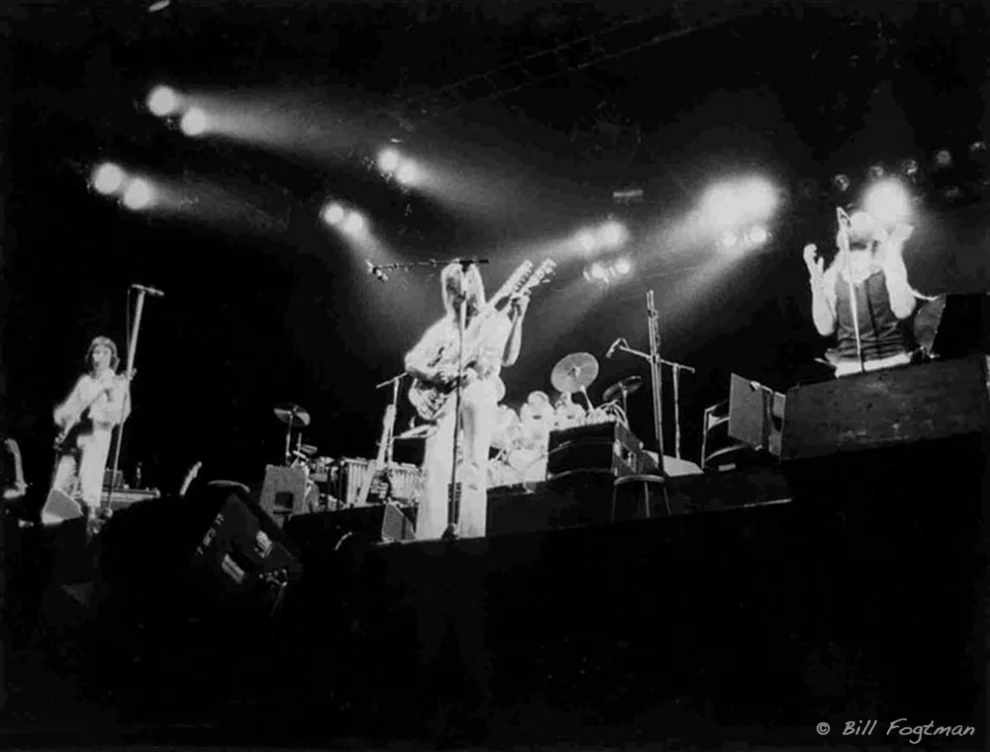
Frenzy at Genesis’ Debut in Maracanãzinho
On the day of the first concert in Rio, the band’s technicians were still working at Maracanãzinho throughout the day. Meanwhile, at the Hotel Nacional, they continued to care for Mike Rutherford’s health. The gastrointestinal infection he contracted in Porto Alegre was still not fully healed. Chester Thompson was also not feeling well. Both were treated with B12 vitamin preparations to get them ready for the evening concerts.
Finally, the moment arrived. Genesis played their first concert in Rio on Saturday, May 14. They were greeted frenetically by the audience, despite starting 14 minutes late. [25].
The following report from Globo the next day is by Ana Maria Bahiana:
“The performance began with an excerpt from Stravinsky’s Firebird. The five members of the group, dressed in white, played Squonk first. Phil Collins greeted the audience with a “oi, cariocas, e um prazer estar aqui.” Throughout the concert, he returned to the microphone to announce the next number, always in Portuguese. The audience went wild when the laser cannons first worked during One For The Vine, painting various figures on the dome of the stadium in rhythm with the music.
The concert itself was beautiful and efficient. It was a spectacle in the best sense of the word. However, Genesis used effects sparingly. Black light, only once, in the dramatic Supper’s Ready, laser beams twice, fog – in One For The Vine and Supper’s Ready – and ultimately less exciting than expected. The sound was loud, powerful, but clean: guitars, bass, acoustic guitars, and vocals were clearly audible.
However, hardly anyone understood the lyrics, despite Phil Collins’ efforts as a sympathetic drummer and singer. Since almost all Genesis songs tell stories, Phil used gestures, facial expressions, and mimicry in a more comfortable continuation of the work of the group’s former leader, Peter Gabriel. But he did not go as far as wearing costumes and masks. The only things he used were an old cloak and a hat in Robbery and a white tunic in Supper. For the Brazilians who had seen Alice Cooper’s snakes, leather pants, and Rick Wakeman’s mud cascades, it was a surprise to see Genesis’ simple, plain clothing: white shirts for Steve Hackett, Tony Banks, and Mike Rutherford, and sleeveless shirts for Phil Collins and Chester Thompson.
The concert ended with the audience in a total frenzy, demanding an encore for five minutes. When the band returned to the stage, they played The Lamb Lies Down On Broadway and The Musical Box. They also wore the jersey of the Brazilian national team.” [25]
After the concert, a large crowd waited outside the hall for the doors to open to see the 9 PM show.
[25].
The next morning, Genesis was back at Maracanãzinho for another rehearsal. Once it was over, Phil Collins and Chester Thompson went to the nearby Maracanã to watch a football match between Flamengo and América. [26].
The evening concerts began promptly at 6 PM and 9 PM, with the last show broadcast by Rádio Mundial (AM) in collaboration with Eldo Pop (FM). Some of the resulting good radio recordings are preserved on bootlegs and can be easily found on YouTube. The announcer is also well audible at the beginning of the concert (as at the other concerts) during Stravinsky’s Firebird, saying: “Aquarius Project 1977 … O Globo presents … Genesis in Concert!“
For the Saturday shows, the same number of spectators returned as on Friday, and many of them were clearly attending their second Genesis performance. According to newspaper reports, Mike Rutherford had recovered well. The ritual with the jersey of the Brazilian national team and Phil Collins kicking an imaginary ball repeated itself. However, Steve Hackett refused again. While everyone changed, he tuned his 12-string guitar.
Regarding the songs played, Globo wrote in its May 16 edition: “As on Saturday, The Lamb Lies Down On Broadway and Afterglow were played again.” The complete setlist for May 15 and all other known setlists from Brazil are listed at the end of the article [26].
The Visual Apocalypse
In a report on May 17, Globo raved about the visual advantages of the shows in Rio:
“To say that Genesis makes ‘progressive rock’ or ‘music with a twist’ is quite inaccurate given the spectacular shows they are performing in Rio, always in a packed Maracanãzinho. No Maracanãzinheiro audience has ever seen such a stunning variety of sounds and, above all, lights. Let there be light! And how it was done…
Two of Genesis’s biggest stars are not on stage but control the massive sound and lighting systems. With incredible taste and precision. Every movement of each group member, every music piece, everything is illuminated with color-changing spotlights, fog walls, lasers, and everything else new in the magical field of light and color magic. The laser, which shines like a moving neon tube or even brighter, is one of the great sensations of the light show, operated in an admirable and creative way with effects that astonish the audience: children of the 70s, looking with open eyes and mouths at the great magicians of their time. And as one would say: “High visuals, mate…” [27].
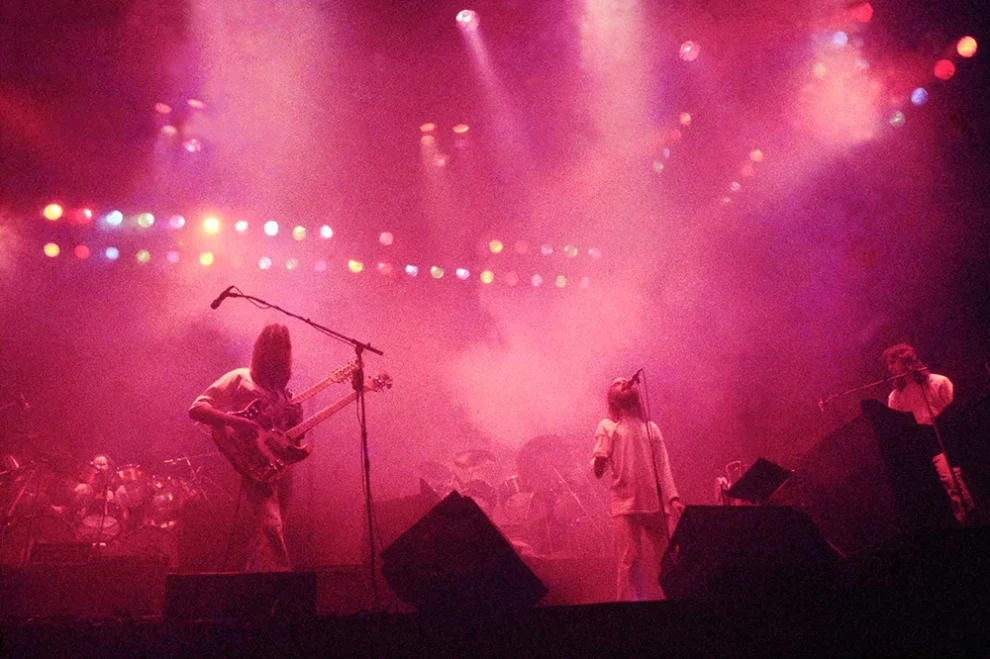
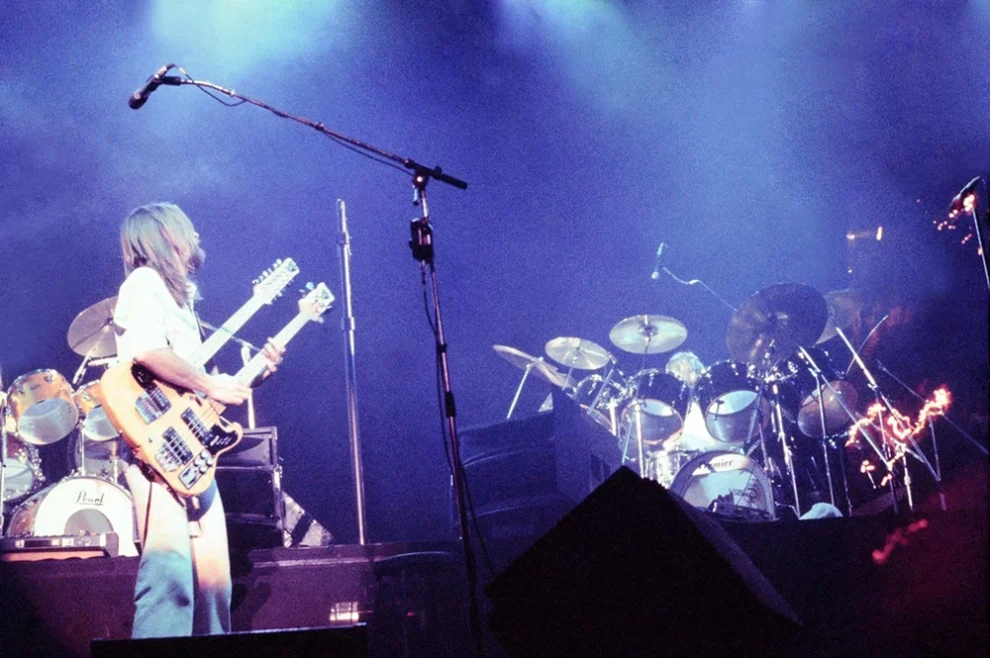
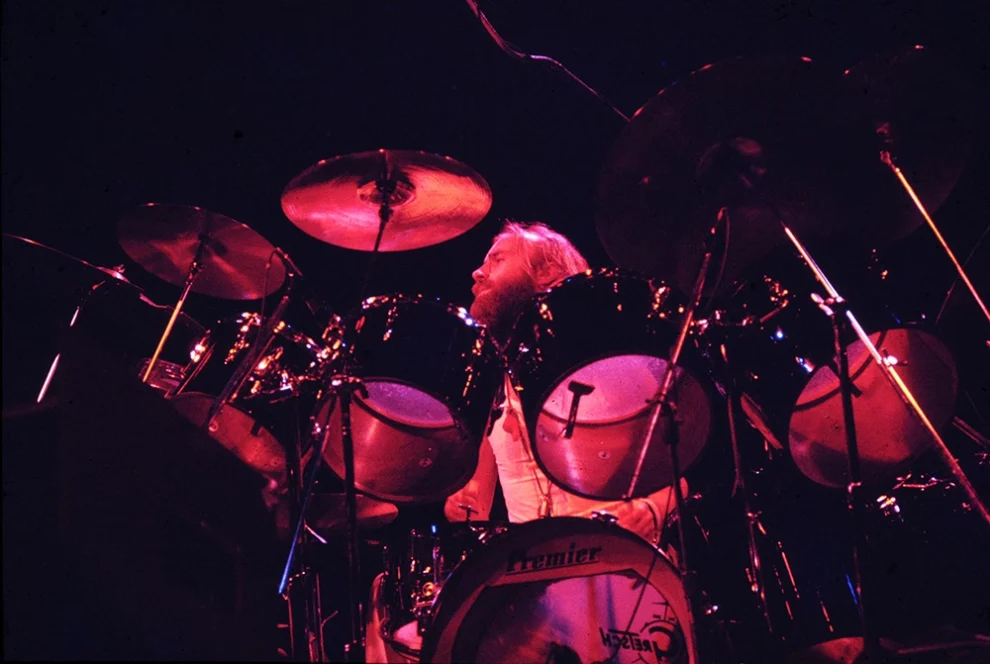
And the newspaper Manchete comments on the predominantly young audience:
“Those who have a ticket enter, those who do not try to jump over the wall or keep telling the poor ticket sellers in their ear: Today is the last day, let us in. They use all sorts of tricks, and some even manage to get onto the stands, where on Saturday a particularly exuberant fan set off a triple firecracker in the sports hall. Over the two days in Rio (two performances per evening), a total of 66,000 paying spectators attended. Apparently, there were even more, as Globo reported 72,000 people” [28].
After the concerts in Rio, the members of Genesis were visibly exhausted. Two concerts a day were not the norm for the band. The next day was used for recovery, and the entire group, reinforced by members of the lighting team, wanted to play football against a Brazilian team in the evening. [26].
On Sunday, May 15, it was announced that the last two Genesis concerts would now also be held at Ibirapuera. The security authorities of the state of São Paulo had limited the number of people who could attend events at the Anhembi exhibition hall. [25, 26].
Thus, the concert plan for São Paulo was adjusted to have all performances exclusively at Ibirapuera, as follows:
– Thursday, May 19 at 9 PM
– Friday, May 20 at 6 PM and 9 PM
– Saturday, May 21 at 6 PM
– Sunday, May 22 at 6 PM and 9 PM
Tickets for São Paulo cost 70 cruzeiros for the stands, 100 for numbered seats, and 200 for seats in front of the stage. Tickets were available at the Globo Theater, Galeria Prestes Maia, and the box office of Ibirapuera. [26].
Farewell from Rio
To bid farewell to Rio, Genesis met with the Aquarius Project team for dinner at Clube Umuarama Gávea. The planned football match had to be canceled due to rain, although Phil Collins and Tony Smith wanted to play even in the rain. [29].
Paraty
On Tuesday, May 17, the band left by bus for São Paulo. The Aquarius team had told them about Paraty, and they wanted to spend the day there and stay overnight. The town was founded by the Portuguese in 1660 and lies picturesquely between imposing mountains and the green coast with its azure sea. Paraty is halfway between the two major cities of São Paulo and Rio de Janeiro, on the border of the two states with the same names. Unfortunately, the weather was not very good, and the sea had flooded some streets of the town. Phil Collins later called it the “Paraty Venice.” Despite this, the band was enchanted by the town. Phil took hundreds of photos, and everyone loved the food. Unfortunately, they could not see the Divine Festival (Festa do Divino), which was the main attraction in June.
Steve Hackett did not go to Paraty; he had his own program with his fiancée Kim. Mike Rutherford also stayed in Rio with his wife Angela to show her more of the city. They flew directly to São Paulo on Thursday. [30].
São Paulo
In Rio, there was concern for Mike Rutherford and Chester Thompson, but in São Paulo, Phil Collins was the one who needed special care. The air pollution and dry climate were not good for his vocal cords, as he did not have enough time to acclimate. For this reason, the band wanted to stay outside the city at the Holiday Inn Hotel in São Bernardo do Campo. However, when they arrived in São Paulo on Wednesday, May 18, they preferred to stay at the Brasilton Hotel. Mike and his wife stayed at the Hilton.
On May 19, Genesis rehearsed at the Ibirapuera Sports Hall and gave another press conference in the lobby of their hotel. They discussed the Brazilian audience, saying they were used to a different kind of audience reaction. The Brazilian audience was very quiet during their performances, which they had never experienced before in their world tours. “The Brazilians are different; they remain silent during the performances and applaud only at the end.” [31,32].
In the evening, the band performed for the first time at the Ginásio do Ibirapuera at 9 PM. [31]. When the concert was postponed on 5 May from 21.00 to 19.00, the tickets had already been printed. To avoid having to print new tickets, the date was simply stamped 19 May 1977 (see ticket below).
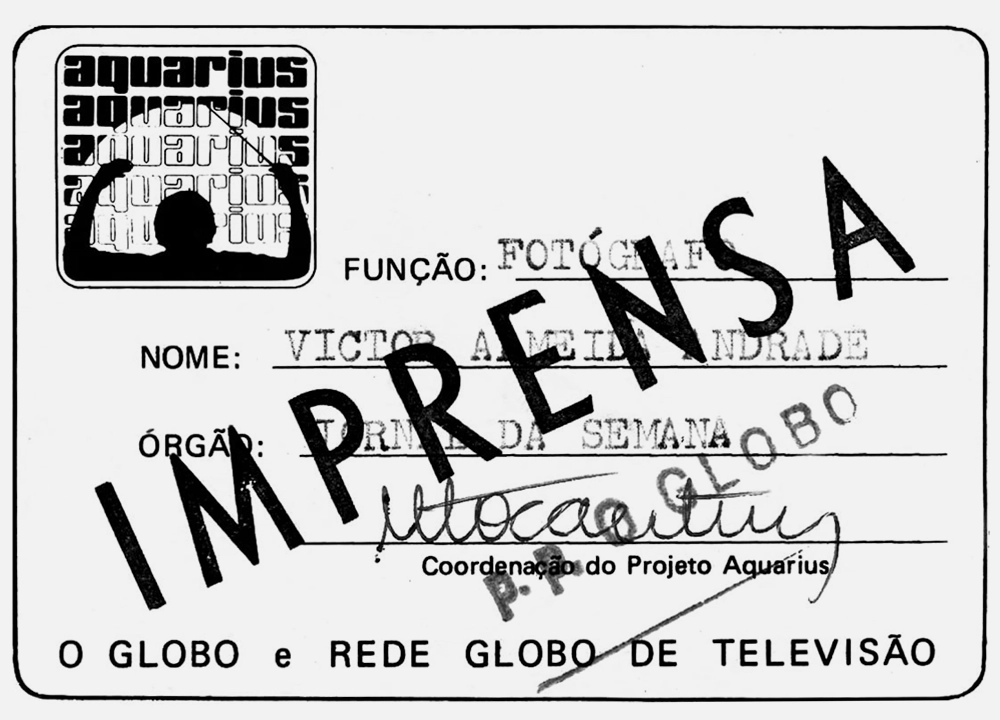
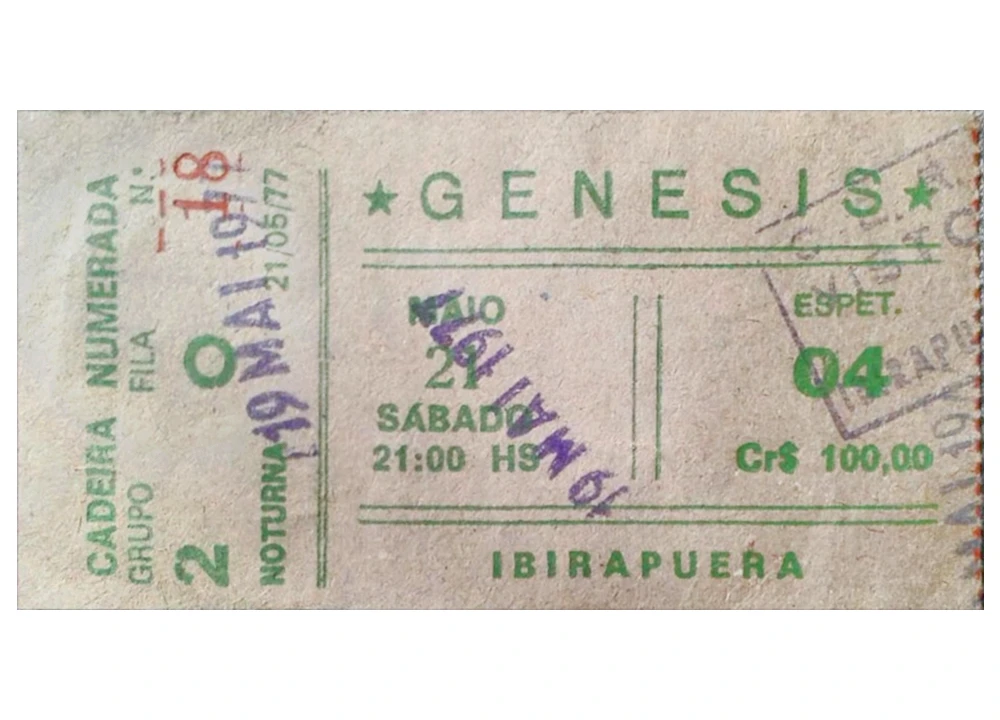
On May 20 (Friday), the band played two more concerts at the Ibirapuera Sports Hall, always to a full house. The newspapers dedicated a lot of space to the topic and emphasized the importance of the Aquarius Project initiative. [34].
During the show on Friday, when the audience at Ibirapuera demanded an encore, a young man dressed in white jumped onto the stage and was momentarily mistaken for one of the band members. He later explained that he had promised his friends “to play with Genesis once.”
Notable were also the numerous boos when the band returned to the stage for the encores wearing the jersey of Santos Futebol Clube. Phil Collins had decided against wearing the jersey of the Brazilian national team, explaining that he wanted to honor Pelé, the greatest footballer of all time. Despite the audience’s reaction, he remained calm and ran along the edge of the stage, kicking an imaginary ball and making his usual jokes. [33].
On the evening of May 21, Genesis played their fourth concert in São Paulo at 6 PM. The two final concerts of the Brazilian tour followed the next day. [34].
In June, a long, personal report by Ari Sérgio Marques Souza appeared in the newspaper Expansão about the concert on May 21 in São Paulo:
“We finally traveled to São Paulo to see the group up close. After all, anyone who loves music is willing to endure the feared cold of São Paulo for a few moments of warmth. But the most important thing is that these moments were the most musical for us Brazilians. There was a sound that no one in this country had known before. The sound I’m talking about was the speaker system of the guys. It was perfect. The technical expertise of the team accompanying them is responsible for this perfection.
The show took place at the Ibirapuera Sports Hall and was scheduled for 6 PM. But it actually started at 7 PM. The entrances to the sports hall were full of people who, in my opinion, could not see the show for one reason or another, as the tickets were already sold out and those available were being sold on the black market at astronomical prices.
To control the crowd, there were police on foot, mounted police, riot police, batons, police with dogs, and tear gas bombs, and to top it all off, female police officers as well. Without worrying about it, we went in because the applause from the people already inside the gym made us impatient, fearing we wouldn’t find a good spot. As we climbed the stairs, we went through the appropriate (so-called general) searches and finally settled down.
Thanks to the three mixing consoles, two lighting consoles, and two receiving devices, the sound reached every ear. The group seemed very apathetic to me, without the slightest movement, except for Phil Collins, who was a bit more lively, even on the short path from the drums to the microphones. But during the show, it was clear that Genesis was a very homogeneous group that had to be calm to play their music. I don’t know if I expected a “mis en escène” show from the days of Peter Gabriel, but musically, there’s nothing negative to say, because the sound is truly symphonic and captivating.
You could also clearly see Tony Banks’ musical leadership, who was responsible for all the musical paths the group took during the show. It was a beautiful performance. In well-rehearsed Portuguese with a strong accent, Phil Collins announced many of the songs. Those who saw the concerts enjoyed them and, after six sold-out performances with 13,000 spectators each, had nothing to complain about.”
[35].
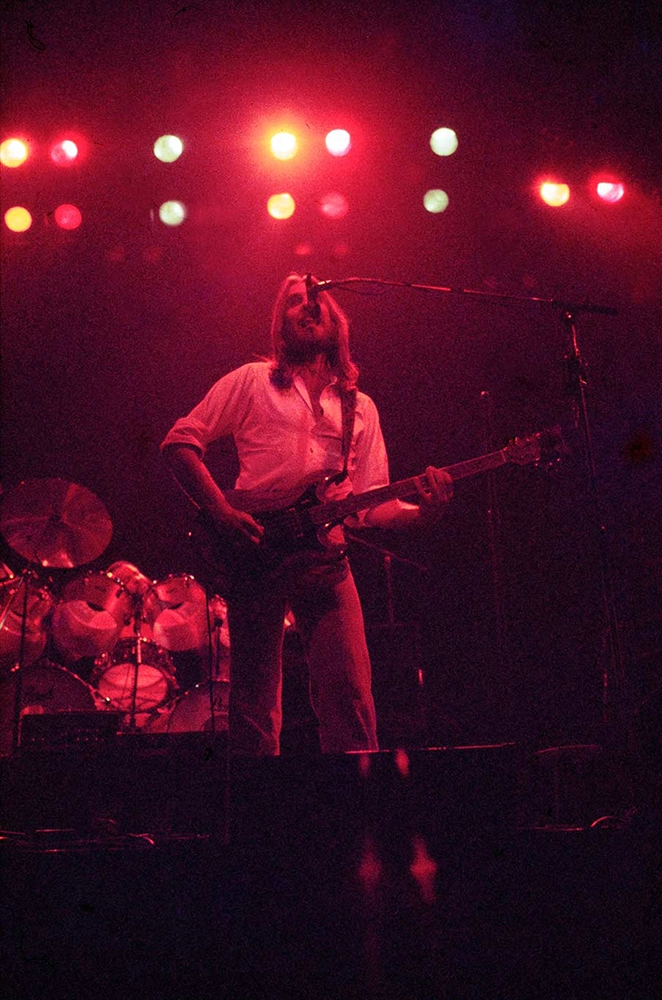
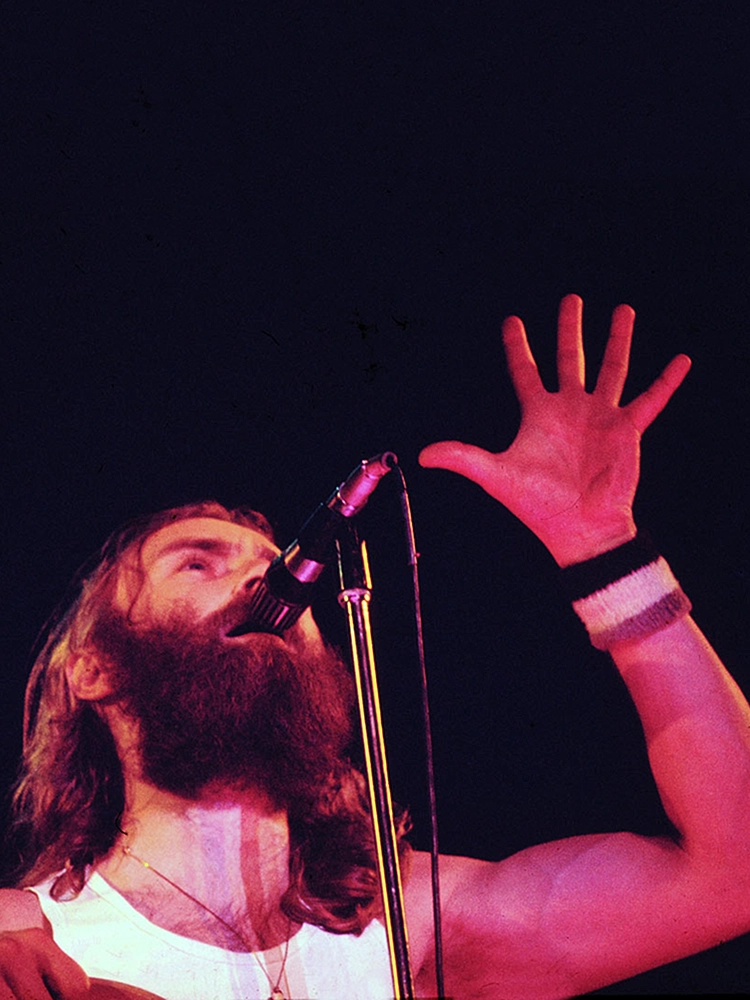
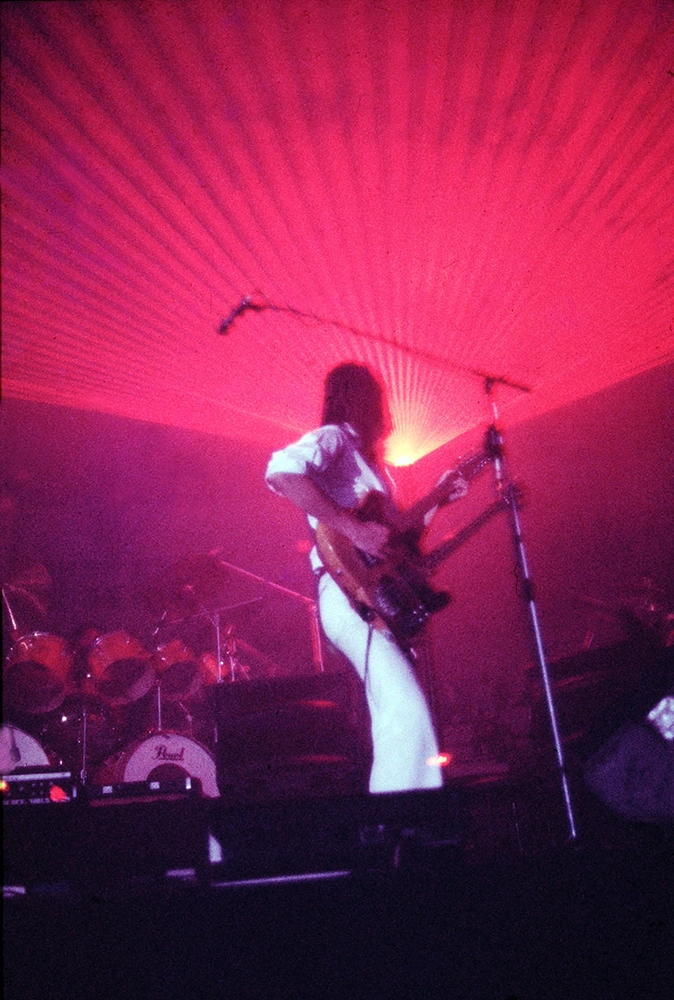
This concert in São Paulo is also the source of a fantastic, if not the best, live recording of the Wind & Wuthering tour. Many consider it even better than the live album Seconds Out, as the mix is very balanced, and every single part can be heard perfectly.
After the end of the tour in Brazil with 12 concerts and more than 150,000 spectators, Phil Collins and Chester Thompson flew back to London on May 23. Tony Banks, Mike Rutherford, and Steve Hackett returned to Rio once more. From there, they traveled home on Wednesday.
[36].
Genesis in Brazil: Dream or Nightmare?
Occasionally, there was also criticism about the tour. The Aquarius Project was criticized for not financing concerts or tours by local artists, but instead paying Genesis an astronomical fee of $10,000 per show. Genesis was accused of not contributing anything to Brazil’s musical culture. [40}.
Ana Maria Bahiana wrote another detailed report about one of the concerts in Rio on May 16:
“One might think that Genesis, with such foundational elements (even a bit of jazz with Phil Collins and Chester Thompson), would engage in improvisation and instrumental excursions. Sad mistake: Genesis puts on a show, not a concert. Their (good) musicians limit themselves to playing live, with lights, smoke, etc., the pieces from their albums. Even the occasional guitar or keyboard solo are identical to the recordings. Not even Steve Hackett, the group’s most brilliant instrumentalist, escapes this unification.
There are no innovations or risks either. Even without the blasé European or American audience, Brazilians do not need 10-minute pieces, songs with varying tempos and symphonic pomp (played with a Mellotron). Especially since we have infinitely richer, broader, and more stimulating musical material here, which we can experiment with rather than following the well-trodden paths of English rock.
So, without high expectations and overestimations – which the Brazilian audience is not accustomed to: The audience should expect a concert that is musically beautiful and flawless at best. Just like their lighting and sound technicians, the five Genesis musicians make no mistakes. There is no dirty note, no out-of-tune note, no missing note, no premature entry. The timing is perfect, often brilliant. Everyone seems to communicate through telepathy.
And the songs are beautiful. Even with the long sections where instruments enhance or embellish the melodic line delivered by Phil’s clear voice, they are wonderful songs. Even when they are complex and full of characters like “Supper’s Ready”: less a suite, more a collage of songs cleverly connected together, with the crème de la crème of visuals (which is a great relief for the Brazilian audience that seriously boos the lyrics).
As I said before, the lyrics of the songs come across as bland by Brazilian standards. This is not insignificant when you consider that Genesis has positioned itself with an enlightening claim and has been at least a storytelling group during its eight years of existence. Of the repertoire presented here, only two pieces are non-narrative: the instrumental “In That Quiet Earth” and the lyrical “Afterglow.” All others deal with dramas and characters: a hunter and a strange animal in “Squonk,” an inept thief in “Robbery, Assault & Battery,” a gardener’s dreams in “I Know What I Like.” There is also nothing extraordinary about these works. Even three of their best works of biting British sarcasm were omitted: “The Battle Of Epping Forest,” “The Cinema Show,” and the new “Blood On The Rooftops”. [37].
The columnist João José Miguel’s critique on 20 May was entirely negative:
“Culturally? Last weekend in Rio de Janeiro was marked by total emptiness in the music industry. This can be explained: The technocrats behind Genesis were in town with thousands of cokeheads, emaciated executives, and eccentrics who had already sold out tickets for their four shows at Maracanãzinho stadium
The enormous amount of equipment, massive advertising by Rede Globo, and rock star status probably scared off Tupiniquin singers who cancelled all their concerts while suffering under this unfair competition.” [38]
Tárik de Souza concluded in Jornal do Brasil on 15 May that Genesis’ performances were no solution to the problems of Brazil’s show business scene, although he acknowledged their “majestic competence”:
“If the problem of Brazilian show business were more about lack of know-how than resources, then the series of performances by English band Genesis would be a useful lesson. […]
A plethora of lights in virtually all colours falls at regular intervals onto the stage and bathes it in various moods. […] The sound is also rated as overwhelming. […] Further attractions that keep the audience breathless and repeatedly prompt cheers and applause: When Genesis tells Romeo and Juliet’s romantic story, two giant worms covered in fabric scraps sway in the wind from air vents on both sides of the stage being inflated.
At any sign that audience interest might wane, new fireworks are set off – but that doesn’t stop some boos because musically Genesis has nothing beyond classic rock influences and style. … Only regarding the show does Genesis deserve superlatives: The two-hour performance is so well-timed that there’s just enough room for an encore at the end. The spotlights remain on over an empty stage as the group reappears wearing Brazil national team jerseys while the euphoric packed stadium roars. The result: delight and top-notch entertainment. And an inevitable conclusion: Since Brazil’s show business problem is lack of money rather than lack of wonderful ideas, Genesis’ million-dollar majestic performance isn’t a solution but rather another aggravating factor”. [39].
Angela Dust alias Ezequiel Neves (a known hater of progressive rock) expressed his displeasure in June in a magazine called Revista Geração Pop with Globo’s praised “Aquarius Project” and denounced Genesis’ astronomical fee ($10,000 or 140,000 Cruzeiros per performance). One dollar from 1977 corresponds to approximately $5.21 (£5) in purchasing power in 2025.
He wrote:
“While popular Brazilian music – so rich in creativity yet so poor in resources – seeks sparse official support to ensure its dissemination, we just witnessed a devastating million-dollar Genesis tour through Brazil partially subsidised by Rio de Janeiro’s tourism office.”
He considered Genesis “one of today’s worst and most expressionless groups in rock music” and accused them of “[…] a boring display of technique that hides artistic uselessness under the worn-out label of progressive rock”. [28,40]
Conclusion
Many attendees at these twelve concerts have a different view of this first and only South America tour by Genesis compared to some critics. Even today, those who attended as mostly young concertgoers rave about these fantastic concerts in YouTube comments or blogs. Moreover, recordings from São Paulo’s show on 21 May 1977 hint at how great these concerts were. From the perspective of Brazil’s local music scene, some criticism towards Globo’s Aquarius Project may be understandable. But this surely cannot be blamed on Genesis themselves.
Let us leave Phil Collins with the final word from his book Not Dead Yet, where he recalls Brazil’s tour.
“We travelled to Brazil for the first time where 150,000 people saw us perform. Each one of us had an armed bodyguard to prevent us from being kidnapped. It was an entirely new experience for us. We clashed with military police. We nearly got run over by a lorry on a motorway. And we jammed with local musicians in bars. We indulged luxuriously thanks to our record label while poverty reigned next door in favelas; flirted with voodoo – it was fascinating yet frightening.” [41]
A Collector’s LP
To market Genesis’ tour retrospectively came June’s release Genesis In Concert, issued by Globo’s label Som Livre. Unfortunately it doesn’t contain live recordings from any Brazilian concerts but merely studio tracks instead. However, since it was exclusively released in Brazil alone makes it interesting for vinyl collectors.
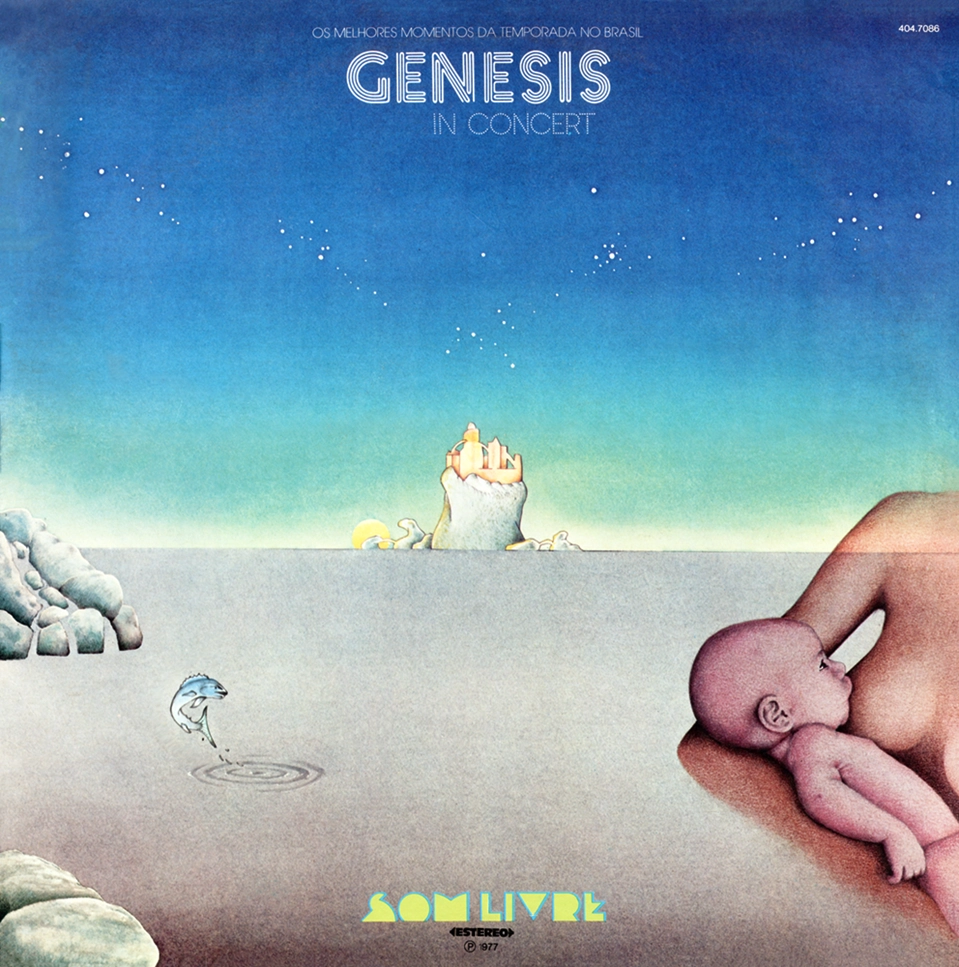
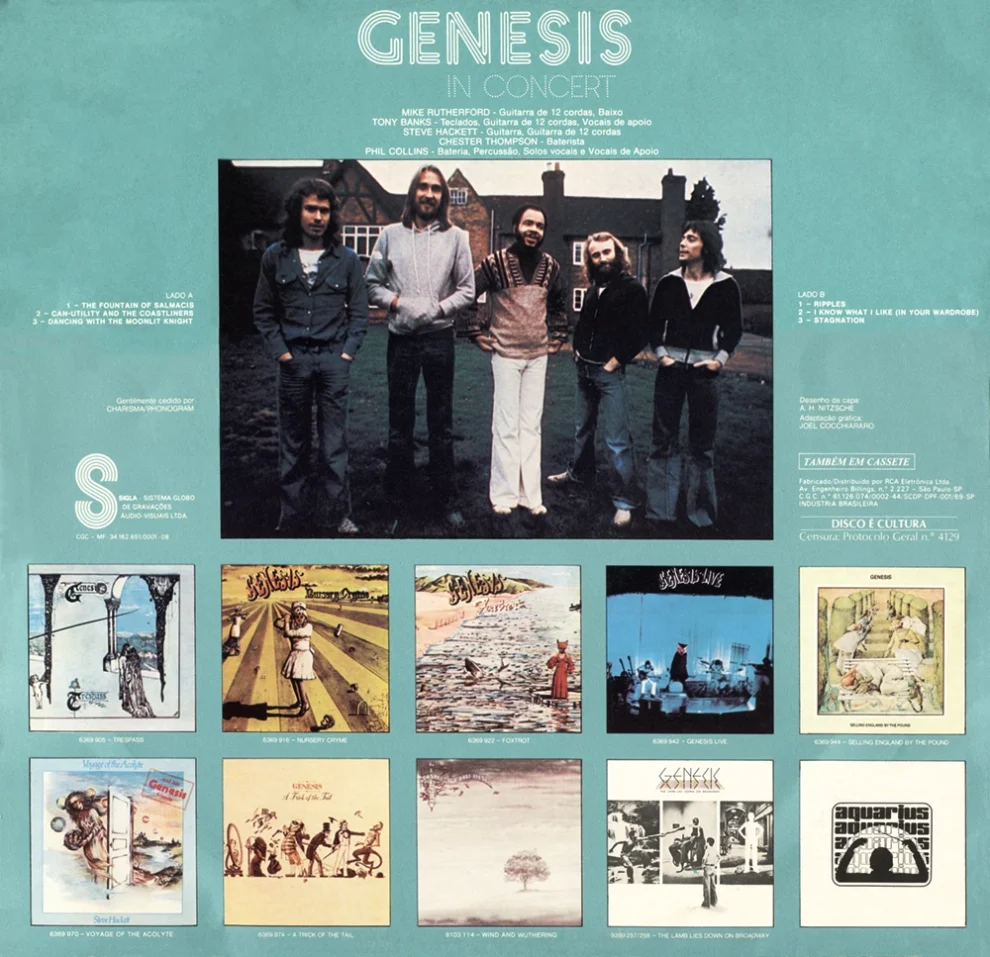
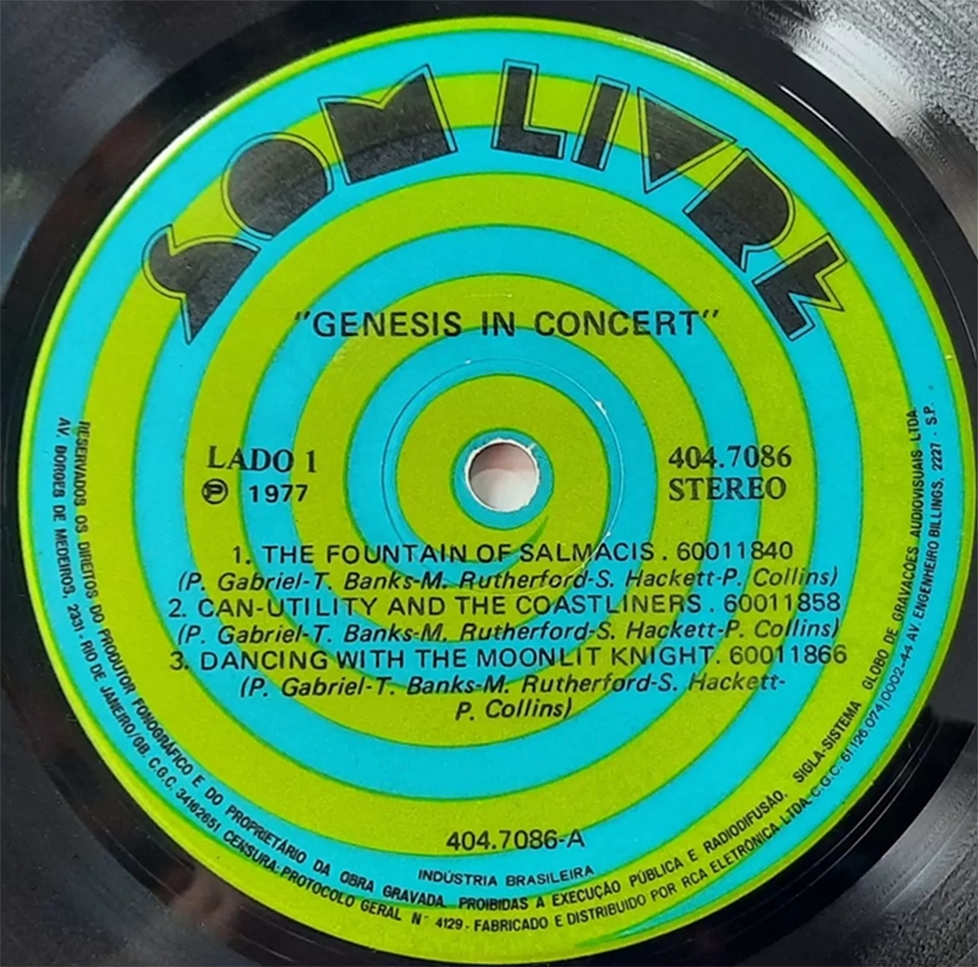
Author: Peter Schütz
Research: Alex Sturm & Peter Schütz
Proofreading: Helmut Janisch & Alex Sturm
Header graphic: Helmut Janisch
Live Photos (in colour): Victor Andrade
B/W-Potos: Bill Fogtman
Tour dates in Brazil
Simultaneously published alongside this article were Wind & Wuthering tour dates summarised due to São Paulo’s changes for clarity.
10/05/1977 – Porto Alegre – Ginásio Gigantinho (21 hrs)
11/05/1977 – Porto Alegre – Ginásio Gigantinho (21 hrs)
14/05/1977 – Rio de Janeiro – Ginásio do Maracanãzinho** (18 and 21 hrs)
15/05/1977 – Rio de Janeiro – Ginásio do Maracanãzinho (18 and 21 hrs)
19/05/1977 – São Paulo – Ginásio do Ibirapuera*** (21 hrs)
20/05/1977 – São Paulo – Ginásio do Ibirapuera (18 and 21 hrs)
21/05/1977 – São Paulo – Ginásio do Ibirapuera (18 hrs)
22/05/1977 – São Paulo – Ginásio do Ibirapuera (18 and 21 hrs)
** Ginásio Gilberto Cardoso (official)
*** Ginásio Estadual Geraldo José de Almeida (official)
All further tour dates from 1977 can be found here.
Known setlists:
| 10 May 1977, Porto Alegre, Ginásio Gigantinho Squonk One For The Vine Robbery, Assault & Battery Inside And Out Firth Of Fifth Carpet Crawlers …In That Quiet Earth I Know What I Like Eleventh Earl Of Mar Supper’s Ready Dance On A Volcano Los Endos The Lamb Lies Down On Broadway The Musical Box (Closing Section) [20] | 11 May 1977, Porto Alegre, Ginásio Gigantinho Squonk One For The Vine Robbery, Assault & Battery Inside And Out Firth Of Fifth …In That Quiet Earth Afterglow I Know What I Like Drum Duet Los Endos Mike was ill during the concert. That’s why the concert was first cut short and then cancelled completely. |
| 15 May 1977, Rio de Janeiro, Ginásio do Maracanãzinho (9pm) Squonk One For The Vine Robbery, Assault & Battery Inside And Out Firth Of Fifth …In That Quiet Earth Afterglow I Know What I Like Supper’s Ready Dance On A Volcano Drum Duet Los Endos The Lamb Lies Down On Broadway The Musical Box (Closing Section) | 21 May 1977, São Paulo, Ginásio do Ibirapuera Squonk One For The Vine Robbery, Assault & Battery Inside And Out Firth Of Fifth Carpet Crawlers …In That Quiet Earth Afterglow I Know What I Like Eleventh Earl Of Mar Supper’s Ready Dance On A Volcano Drum Duet Los Endos The Lamb Lies Down On Broadway The Musical Box (Closing Section) |
References:
[1] O Globo from 15/03/1977, page 4.
[2] Diaro de Pernambuco from 17/03/1977, page 3.
[3] Carneiro Braziliense from 20/03/1977, page 3.
[4] O Globo from 27/03/1977, page 4.
[5] O Globo from 07/04/1977, page 11.
[6] Jornal do Brasil from 10/04/1977, page 9.
[7] O Globo from 15/04/1977, page 12.
[8] O Globo from 28/04/1977, page 11.
[9] Jornal do Brasil from 05/05/1977, page 10.
[10] Jornal do Brasil from 05/05/1977, page 10.
[11] O Globo from 06/05/1977, page 11.
[12] Jornal do Brasil from 08/05/1977, page 9.
[13] Carneiro Braziliense from 12/05/1977, page 9.
[14] O Globo from 07/05/1977, page 11.
[15] Phil Collins, Not Dead Yet, page 152.
[16] O Globo from 09/05/1977, page 10.
[17] O Globo from 08/05/1977, page 12.
[18] O Globo from 10/05/1977 page 11.
[19] O Globo from 11/05/1977, page 11.
[19a] Jornal do Brasil from 05/05/1977, page 10.
[20] O Globo from 12/05/1977, page 12.
[21] O Globo from 13/05/1977, page 9.
[22] YouTube
[23] Mike Rutherford, The Living Years, page 181/182.
[24] O Globo from 14/05/1977, page 13.
[25] O Globo from 15/05/1977, page 15.
[26] O Globo from 16/05/1977, page 11.
[27] O Globo from 17/05/1977, page 36.
[28] Manchete from 28/05/1977, page 7.
[29] O Globo from 18/05/1977, page 09.
[30] O Globo from 19/05/1977, page 15.
[31] O Globo from 20/05/1977, page 11.
[32] Diario de Pernambuco from 22/05/1977, page B 3.
[33] O Globo, from 22/05/1977, page 17.
[34] O Globo from 21/05/1977, page 10.
[35] Expansão from Juni 1977, page 7.
[36] O Globo from 23/05/1977, page 11.
[37] O Globo from 16/05/1977, page 11.
[38] Carneiro Braziliense vom 20/05/1977, page 3.
[39] Jornal do Brasil vom 15/05/1977, page 6.
[40] Revista Geração Pop, June 1977.
[41] Phil Collins, Not Dead Yet, page 152
You can post any feedback, additions, corrections etc in our forum in this thread.

